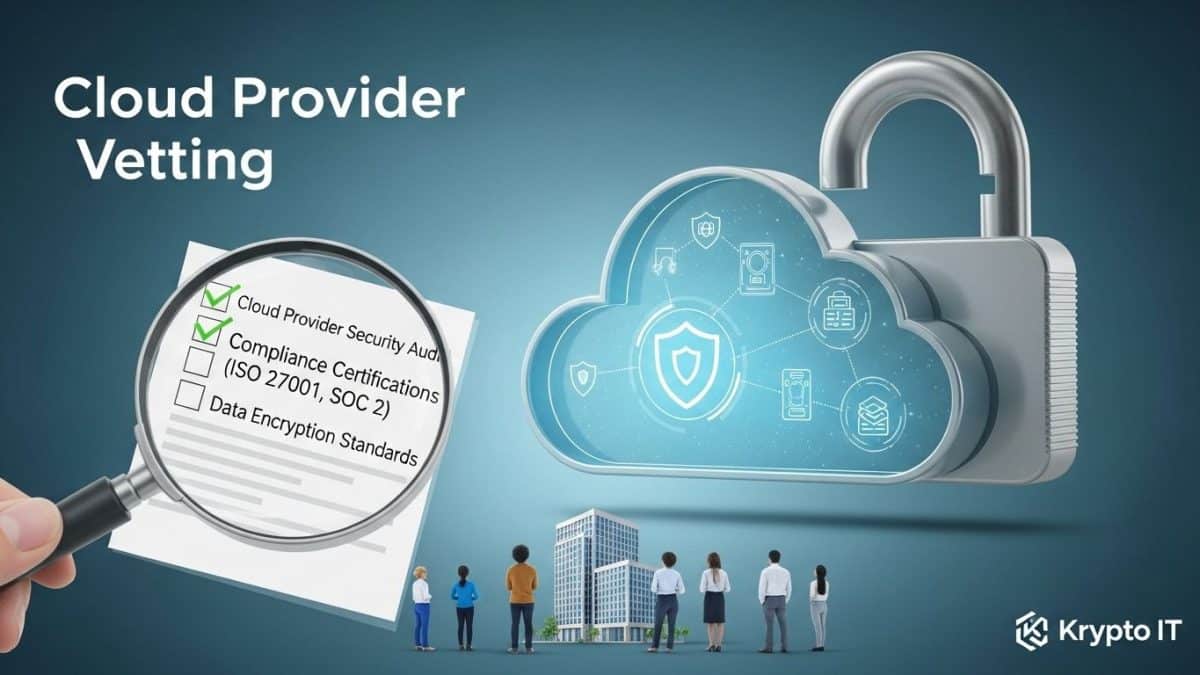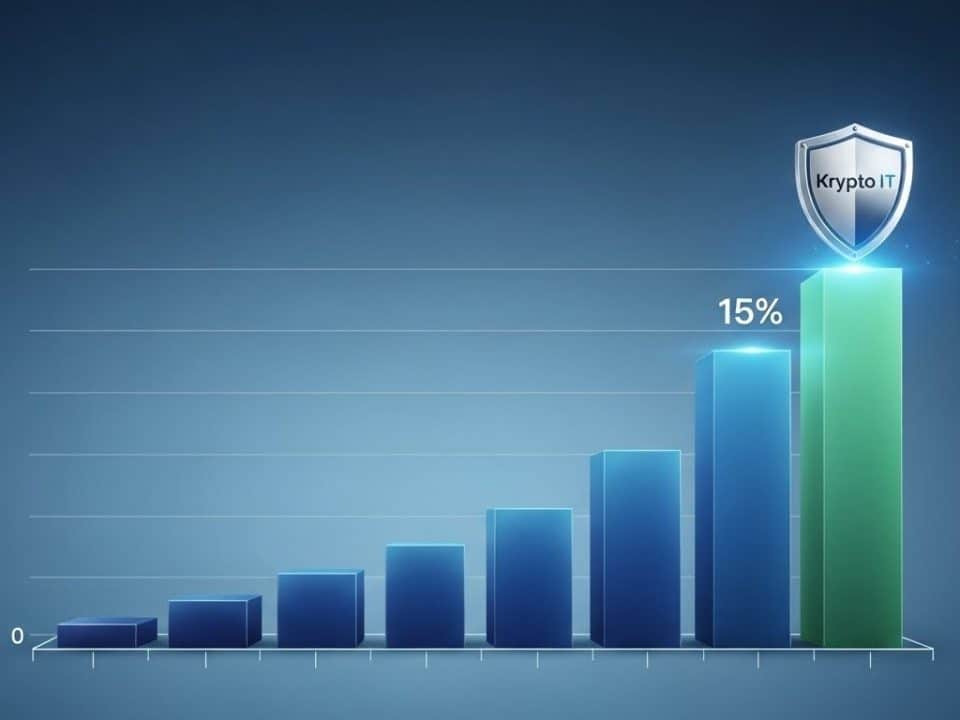
The “Break Glass” File: Creating an Incident Response Plan You Can Actually Use
November 11, 2025
The “Zero Trust” Mindset: Why You Can’t Automatically Trust Anyone on Your Network
November 12, 2025As a Houston-based small to medium-sized business (SMB), you’ve likely migrated critical functions to the cloud—from email and CRM to finance and storage. Cloud services offer incredible scalability and flexibility, but they introduce a new and significant threat: the digital supply chain risk.
When you hand over your data to a third-party vendor, their security posture becomes an extension of yours. A breach at your cloud provider is, by proxy, a breach of your business. The dangerous myth is that “the cloud is automatically secure.” While major providers build secure infrastructure, protecting the data within that infrastructure—and ensuring the provider adheres to best practices—is your joint responsibility.
At Krypto IT, we recognize that vetting these vendors is non-negotiable. Here is a security-focused breakdown on how your SMB can protect itself from a supply chain security problem originating from your cloud partners.
1. Understand the Shared Responsibility Model
The single most confusing concept in cloud security is the Shared Responsibility Model. It’s crucial to understand where the vendor’s duty ends and yours begins:
- Cloud Provider (e.g., AWS, Azure, Google): Responsible for the security of the cloud—the physical facilities, hardware, networking, and the underlying infrastructure.
- Your SMB: Responsible for the security in the cloud—this includes your data, platform configurations, operating systems, network traffic monitoring, and access management (IAM).
If a vendor suffers a breach because they didn’t patch their servers, that’s on them. If your data is breached because you used a weak password on a virtual machine hosted by them, that’s on you. The security of the data itself is always your responsibility.
2. Demand Transparency on Data Location and Encryption
Where is your data physically located? And how is it protected? These questions are no longer optional—they are mandatory for due diligence.
- Data Residency: Do they store your data in one of their domestic data centers, or is it replicated across international borders? This is critical for compliance with regulations like GDPR or industry-specific laws. Ensure your data stays where your compliance needs it to stay.
- Encryption In Transit and At Rest: The vendor must use strong, current encryption methods (AES-256) for all data. Encryption at rest (when stored on their servers) is standard, but you need assurances. More importantly, ensure they support encryption in transit (when data moves between your office and their cloud) using protocols like TLS 1.2+. If they offer you the keys to your encryption, that’s a huge bonus.
3. Scrutinize Access Controls and Identity Management (IAM)
Access management is the number one cause of cloud-related data breaches. Your vendor’s internal policies and their tools for managing your employee access must be robust.
- Multi-Factor Authentication (MFA): This is non-negotiable. Every external vendor you use must enforce MFA for all administrative access. If a vendor allows single-factor access to your data, they are an unacceptable risk.
- Least Privilege: Ask if the vendor’s own employees operate on the Principle of Least Privilege (PoLP). This means their technicians can only access the minimum data necessary to perform their job, reducing the blast radius if an employee is compromised.
- Audit Logging: Can the vendor provide a detailed, immutable log of who accessed your data, when, and from where? Robust logging is essential for both proactive monitoring and post-incident investigation. If they can’t provide this, you cannot be sure who is touching your critical information.
4. Verify Compliance and Security Audits
If your SMB has compliance requirements (HIPAA, PCI DSS, etc.), your vendor must be able to prove they meet those same standards.
- Certifications: Look for industry-standard certifications like SOC 2 Type II reports. A SOC 2 report provides detailed documentation of a vendor’s controls related to security, availability, and confidentiality. If they cannot provide a recent, clean SOC 2 report, proceed with extreme caution.
- Penetration Testing: Ask about their annual penetration testing (pen testing) program. Do they hire a third-party ethical hacking team to try and break into their systems? If so, when was the last test, and can they provide a summary of the results and remediation actions?
Don’t Go It Alone: Partner with Krypto IT
Managing a complex ecosystem of cloud vendors is simply too much for an SMB to handle internally. When you partner with Krypto IT, we act as your dedicated security liaison. We perform the vendor vetting, verify compliance documents, and implement best practices like MFA and least privilege access across all your cloud platforms.
Don’t let third-party risk become your biggest vulnerability. Contact Krypto IT today and let us secure your digital supply chain, giving you confidence in every vendor partnership.




